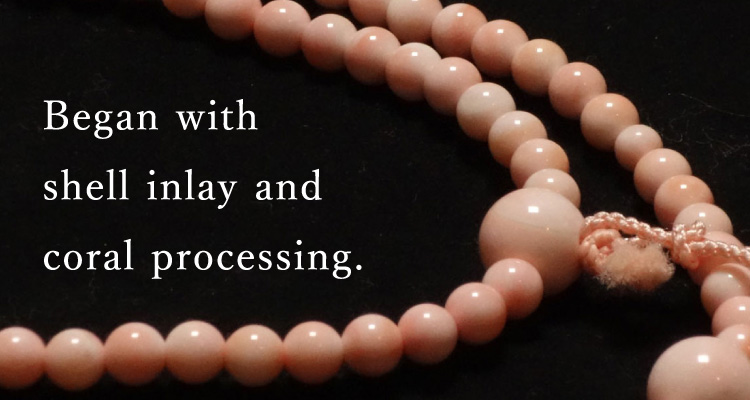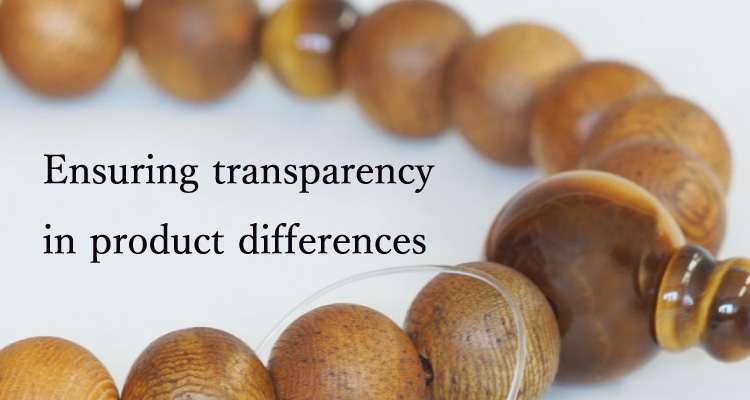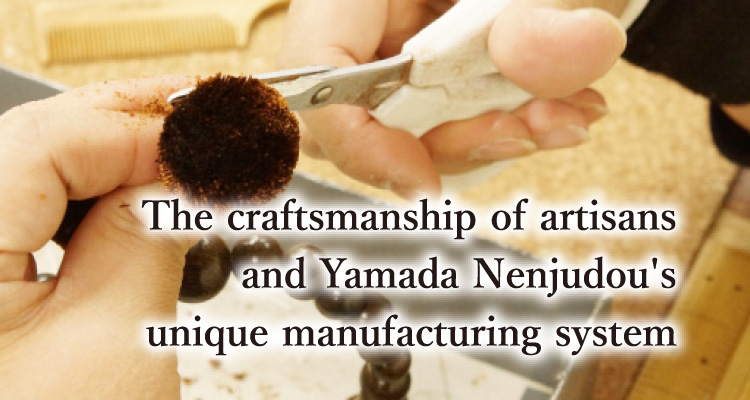- TOP
- Passion for Making Prayer Beads
Passion for Making Nenju
african garnet prayer beads
Creating Prayer Beads That Feel Natural and Warm the Heart
At Yamada Nenjudo, our Nenju are crafted with care, featuring beautifully polished gemstones, supple and elegant tassels, and durable inner threads that won't easily break.Beyond their functionality as ritual tools, our beads appeal to the senses—because they are beautiful, heartwarming, and comforting to the touch.
By showcasing the meticulous work involved—polishing beads, crafting tassels, twisting threads, and braiding cores—we aim to share the dedication behind our craftsmanship and inspire appreciation for high-quality prayer beads.


Yamada Nenjudo began as a family business specializing in shell inlay and coral processing, crafting hair ornaments (woodwork, lacquer, and carving). One of its main tasks was processing coral beads for kanzashi hairpins. Before WWII, these beads were supplied to a store called Ōnoya, which also manufactured prayer beads.
This connection led Umekichi Yamada to apprentice at Ōmatsu, a prayer bead maker in Osaka, and in 1905 (Meiji 38), he began manufacturing and wholesaling prayer beads.
Osaka has long been a city of artisans. In the past, Abeno was lined with coral shops, while Senshu was known for producing glass beads and shell buttons. The JR Loop Line even has a station named "Tamatsukuri" (meaning "bead-making"), reflecting Osaka’s history in bead craftsmanship. Yamada Nenjudo’s ancestors were among these skilled artisans, playing a role in Osaka’s bead-making tradition.
Until the Osaka Expo 1970, Yamada Nenjudo polished bead holes in-house by inserting steel wires into the holes, adding polishing sand from a watering can, and vibrating them up and down with a "clanking" motion. Multiple steel wires were set in a frame, and the polishing was done by moving the frame using a foot pedal.


Yamada Nenjudo values its heritage of bead-making and prayer bead craftsmanship. Each product carries a "Made in Japan" tag as a mark of authenticity. The company distinguishes between high-quality beads polished with the "Tomozuri Hon-kenma" technique and "Diffusion Nenju," which are made from beads that did not pass the highest selection criteria. Although visually similar, the price difference reflects the quality distinction.


Within our company, we have machines that handle every step, from thread preparation to twisting and producing tassels (twisted tassels). For intricate Bonten-style tassels, we not only rely on skilled artisans but have also developed specialized manufacturing systems. Additionally, the essential axis braiding process has been mechanized, ensuring the production of high-quality, uniform prayer beads.
